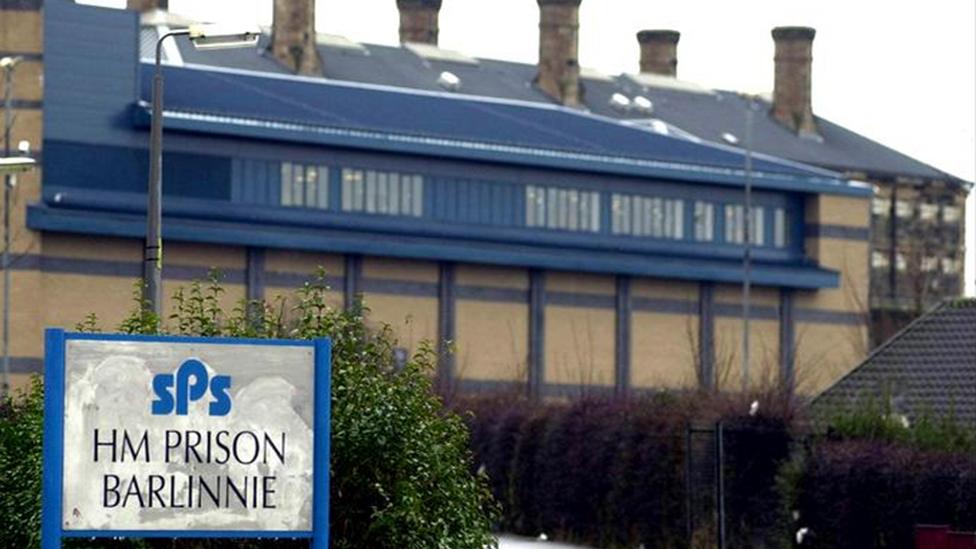Review into handling of prison deaths in Scotland ordered
- Published

Three Barlinnie prisoners were found dead
The Scottish government has ordered a review of how deaths in prisons are handled.
It follows the deaths of four prisoners in just four days.
Scottish Justice Secretary Humza Yousaf said the review aims to improve arrangements and communication with families of prisoners after their death, as well as looking at preventing suicides.
Findings are expected to be published next summer.
HM Chief Inspector of Prisons for Scotland Wendy Sinclair-Gieben will lead inquiries and will consult with Prof Nancy Loucks from Families Outside - a charity for families affected by imprisonment.
Policies, practice and training within the Scottish Prison Service (SPS) and NHS relevant to deaths of prisoners will be examined as part of proceedings.
It is hoped the review will eventually help families to raise concerns about their loved ones in prison.
The review is intended to complement current arrangements for the investigation of deaths in custody and FAIs, the Scottish government said.
'Desire for answers'
Mr Yousaf added: "The safe treatment and mental health of all those in custody is a priority for Scotland's prisons, which care for people with higher levels of risk and vulnerability than the population as whole.
"My thoughts are with every family tragically bereaved by a death in prison custody and I fully understand the desire for answers following the death of a loved one.
"Scotland's justice system is committed to protecting the human rights of all who pass through it and a Fatal Accident Inquiry is mandatory following all deaths in custody."
'Fitting legacy'
Last month three men died at the country's largest jail, Barlinnie, while a fourth was found dead at Low Moss in Dunbartonshire.
Fatal Accident Inquiries (FAIs) will be held into each death.
It came as MSPs heard evidence on a report from the public spending watchdog, external which said Scotland's prison service was on the brink of a safety crisis.
Human rights lawyers Aamer Anwar said the review was welcomed by the families of William Lindsay and Katie Allan - two young people who took their own lives in Polmont.
A review into mental health services in prisons following their deaths made a number of recommendations earlier this year.
It was announced that landline phones could be provided in cells at Polmont and that routine strip-searching of inmates younger than 18 would end.
Mr Anwar said : "If this review is not just another talking shop, then the conclusions of the review must be backed up by law. That would be a fitting legacy to Katie, William and so many others who died in the care of our prisons.
"The families have been promised that they will have a central role to play, so let me state publicly, that they will not be used as 'box ticking exercise'. The important step taken by Humza today could save lives and that opportunity must not be squandered."